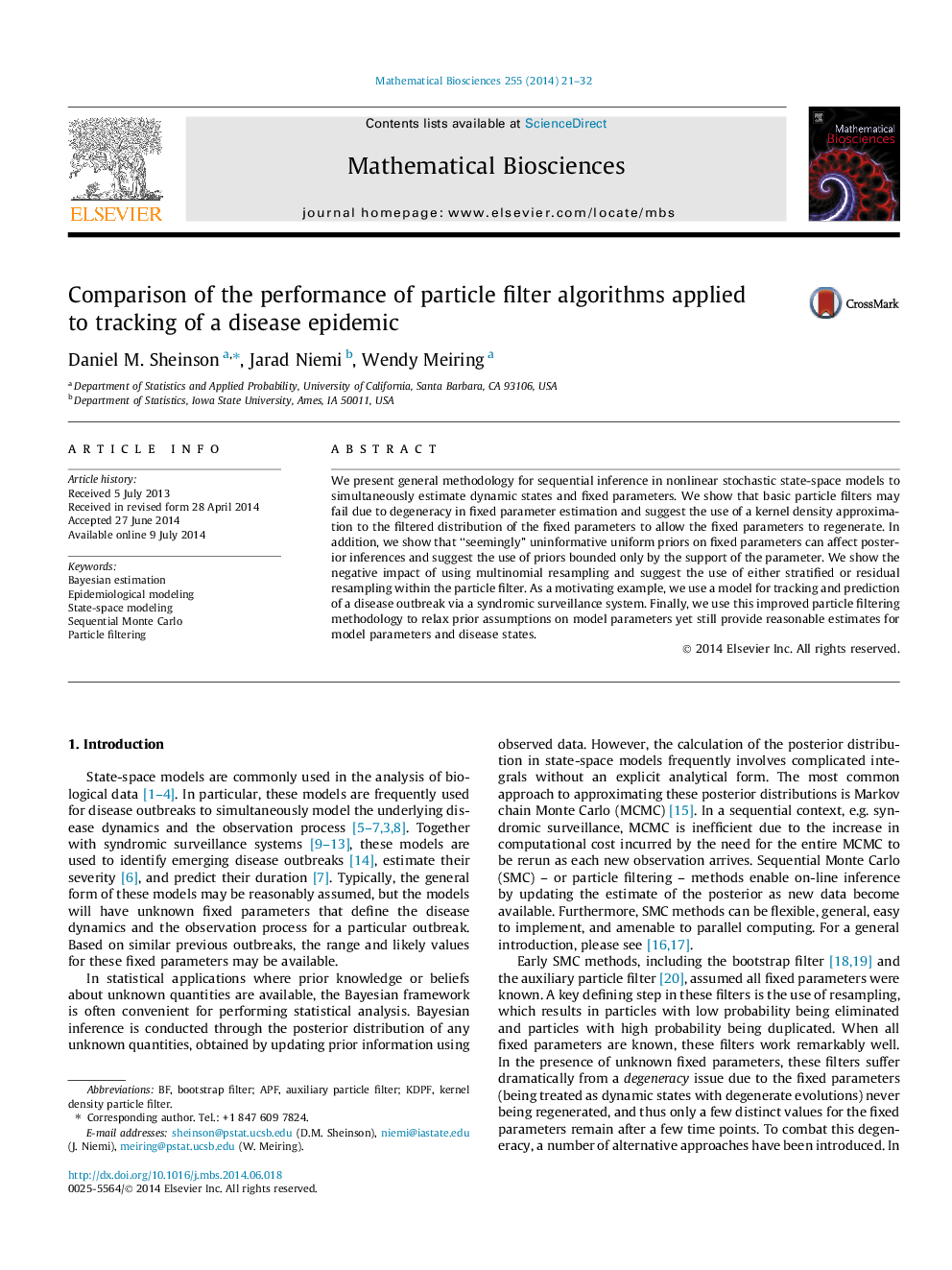| Article ID | Journal | Published Year | Pages | File Type |
|---|---|---|---|---|
| 4500058 | Mathematical Biosciences | 2014 | 12 Pages |
•We propose a strategy for tracking an epidemic using particle filtering algorithms.•We build a compartmental epidemiological model for a syndromic surveillance system.•Regenerating fixed parameters using a kernel density estimate improves accuracy.•We show that bounded priors on fixed parameters can negatively influence estimation.•Multinomial resampling of particles is outperformed by other resampling techniques.
We present general methodology for sequential inference in nonlinear stochastic state-space models to simultaneously estimate dynamic states and fixed parameters. We show that basic particle filters may fail due to degeneracy in fixed parameter estimation and suggest the use of a kernel density approximation to the filtered distribution of the fixed parameters to allow the fixed parameters to regenerate. In addition, we show that “seemingly” uninformative uniform priors on fixed parameters can affect posterior inferences and suggest the use of priors bounded only by the support of the parameter. We show the negative impact of using multinomial resampling and suggest the use of either stratified or residual resampling within the particle filter. As a motivating example, we use a model for tracking and prediction of a disease outbreak via a syndromic surveillance system. Finally, we use this improved particle filtering methodology to relax prior assumptions on model parameters yet still provide reasonable estimates for model parameters and disease states.
